Humans of Climate Change
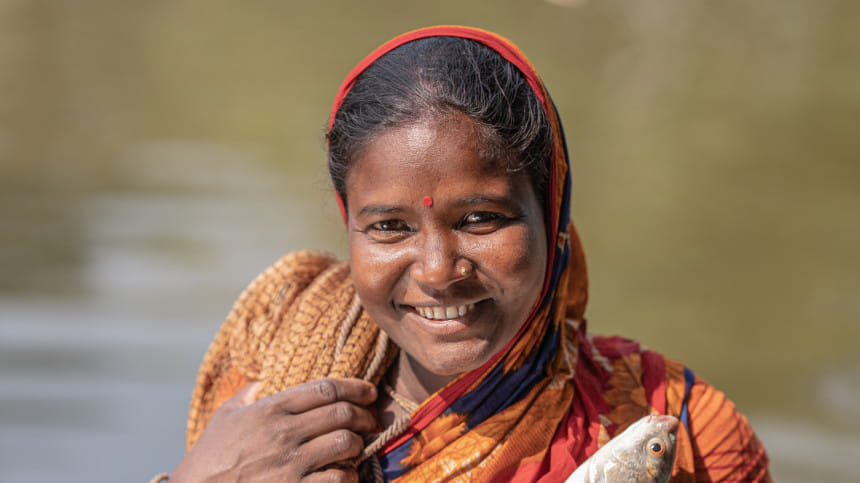
Sima Munda
"I am Sima Munda, a 28-year-old indigenous woman with a humble education level of just third grade. In 2020, the relentless floods brought the harsh reality of climate change crashing into my life, turning me into a helpless victim. My home and fish farm were swept away, leaving me homeless and shattered.
To make ends meet and survive, I resorted to selling fish and working as a day laborer. A new chapter in my journey began when I received assistance from the project.
I seized the opportunity to start my own business and engage in agricultural work. I cultivated vegetables, raised fish, and explored various avenues to secure my livelihood. Gradually, I established my own shop, steadily improving my social standing through the fruits of my labor.
The possibilities for my daughter's future are boundless in my heart, and I dream of her becoming a doctor, breaking free from the constraints imposed upon us by our circumstances."
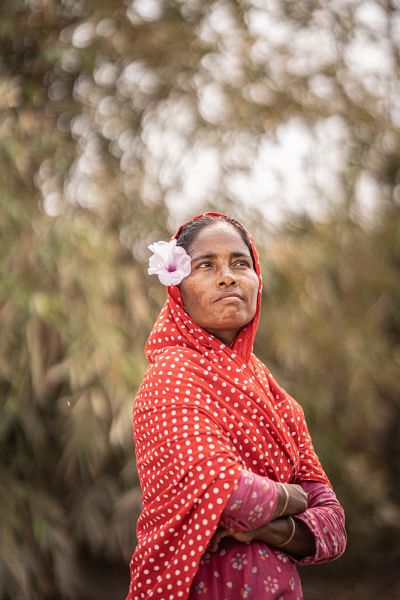
Dulia Begum
"In the face of relentless hardships brought upon by the unforgiving river, I, Dulia Begum, a 40-year-old woman, was left with no choice but to seek refuge in a nearby shelter facility after the flood washed away my home and land. My speech impairment and poor hearing made my struggles seem insurmountable. In order to meet immediate medical expenses and repair my damaged home, I was forced to part with my beloved goat. Refusing to succumb to despair, I started to care for and sell ducks, a small endeavor that provided me with some stability. I now feel more empowered. Deep within my heart, I hold a cherished dream of owning a cow, a symbol of stability and prosperity that I aspire to attain one day."
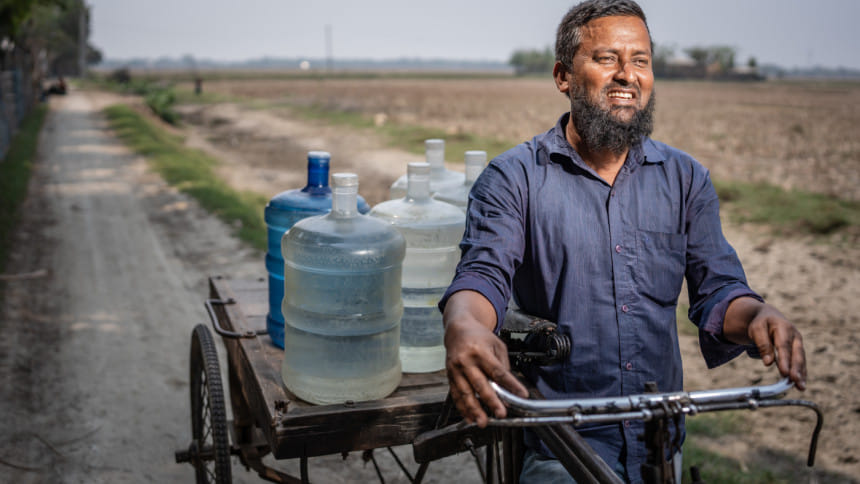
Rezaul Karim
"I, Rezaul Karim Sardar, a 38-year-old, faced numerous hardships in my community. Living in an area plagued by limited access to safe drinking water, water logging, and frequent floods caused by the changing climate was a struggle, especially with a seasonal job and no stability. But I refused to be defeated. I employed my resourcefulness to purify salty water. Through this, I not only help those in need but also earn a regular income.
Harbouring a dream of owning a stable home, I aspire to run a small shop, creating a sustainable source of income that will support both me and my loved ones."
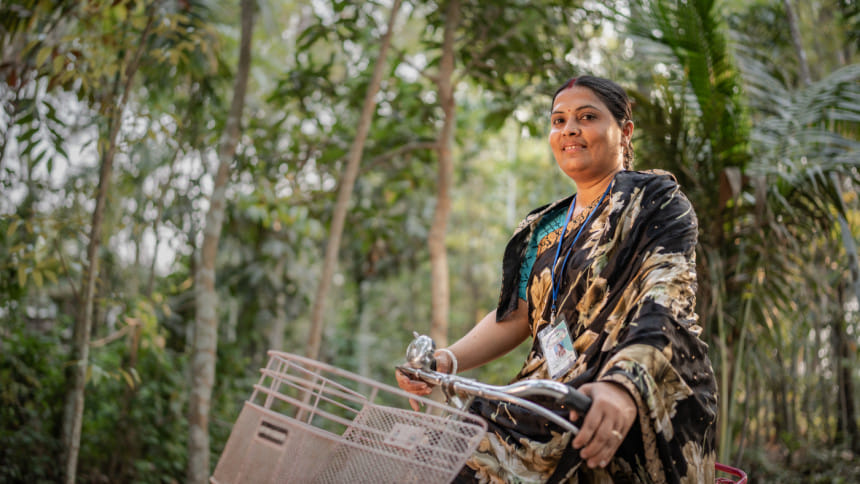
Sheuli Rai
"I am Sheuly Rai, a shining example of an extraordinary individual who has undergone a remarkable personal transformation. Starting as an HSC graduate, I have blossomed into a self-assured and compassionate community worker, leaving a positive impact on those around me. My unwavering dedication and involvement as a volunteer with the support of LoGIC have not only uplifted my own life but have also touched the lives of my family and the wider community."
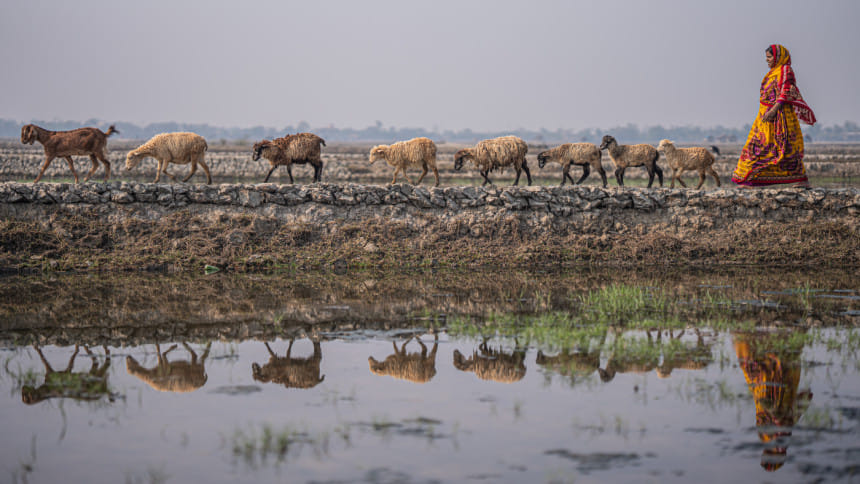
Rahima Khatun
"My name is Rahima Khatun, and at 35 years old, I have faced the harsh realities of flooding, river breaks, and the hardships of being a climate refugee. Yet, in the face of these immense challenges, I have found the strength to persevere, driven by a deep-rooted commitment to forge a better future for my family and myself.
This project helped me to embark on my entrepreneurial journey, starting with just a few sheep. I seized every opportunity that came my way, buying and selling not only sheep but also goats, ducks, and other animals. As my business grew and flourished, I embraced the possibilities that unfolded before me. Today, I can proudly say that I have achieved a sense of stability and security, thanks to the success of my thriving fish farm".
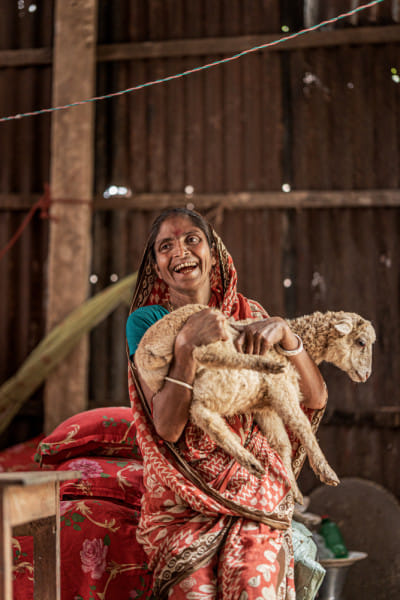
Kolpona Das
"My name is Kolpona Das and I am 45 years old. I have faced the unrelenting wrath of floods, enduring their ferocious fury time and time again.
My husband's unemployment forced me to take on the role of a day laborer, toiling in the rice fields and tending to the never-ending household duties. The weight of my family's well-being fell squarely upon my shoulders, and I knew I had to find a way to create a better future for us all.
Hope arrived in the form of LoGIC's support. Three years ago, armed with just three sheep and an unyielding determination, I embarked on an entrepreneurial journey that would change my life. Through sheer resilience and unwavering hard work, my flock expanded, each step forward bringing me closer to my dreams. With the proceeds of selling some of my sheep I acquired a boat.
As a mother, my heart is filled with aspirations for my sons. I dream of sending them to university, unlocking the doors to a world of possibilities."
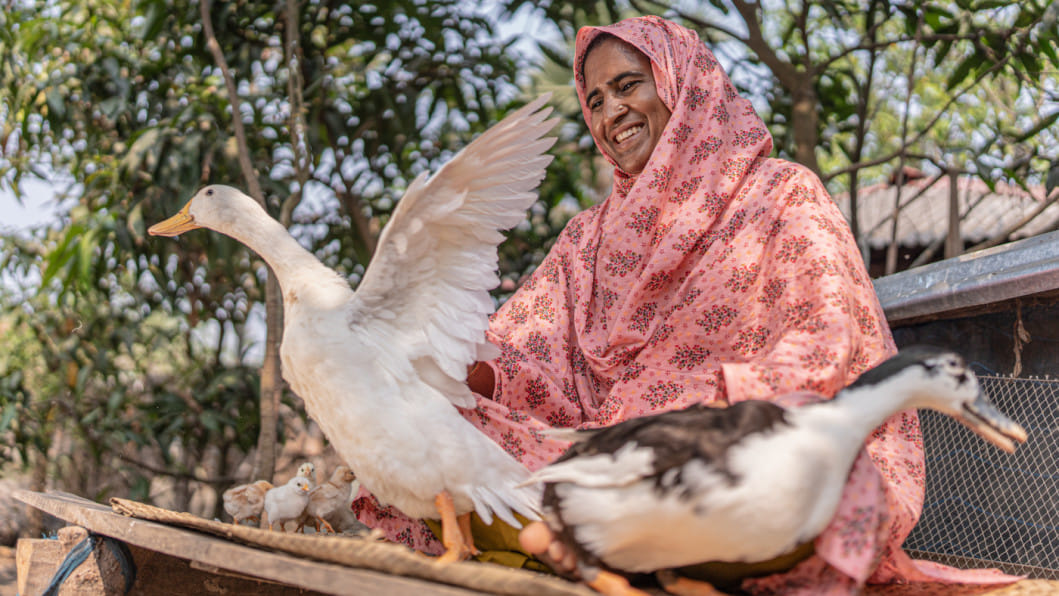
Najlima Khatun
"I am Najlima Khatun, a 39-year-old woman who defied societal norms and shattered myths that held me back. In the face of my husband's inability to work, I took it upon myself to shoulder the responsibility of providing for my family's necessities. Balancing my time between working on a humble sewing machine and teaching tuition, I tirelessly worked to put food on the table and secure a better future for my loved ones.
As a victim of the devastating impacts of floods, I experienced firsthand the havoc they wreaked upon my home. However, I embraced resilience and a determination to rise above the challenges that beset me.
I embarked on a remarkable journey of entrepreneurship with the invaluable support of this project. I started by selling chicks and ducks, gradually expanding my business to include quail, goats, and cows. Today, we are thriving, thanks to the steady income generated from my endeavors. I was also able to purchase an easy bike for my husband, easing his transportation burdens and further enhancing our quality of life."
Local Government Initiative on Climate Change, (LoGIC) project, implemented by the Local Government Division of the Ministry of LGRD&C, is a joint initiative of the Government of Bangladesh, UNDP, UNCDF, EU and Sweden. The project was initiated in 2016 with an aim to deliver climate finance to the most vulnerable households and the local government institutions in 72 unions of Khulna, Sunamganj, Kurigram, Bagerhat, Barguna, Patuakhali and Bhola districts. The five-year project is designed to roughly support 400,000 most climate-vulnerable people (56% women) in Bangladesh.
Photos: Prito Reza

 For all latest news, follow The Daily Star's Google News channel.
For all latest news, follow The Daily Star's Google News channel. 


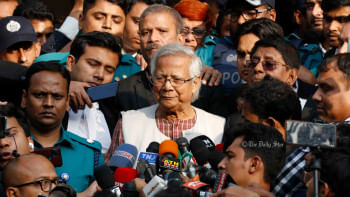

Comments